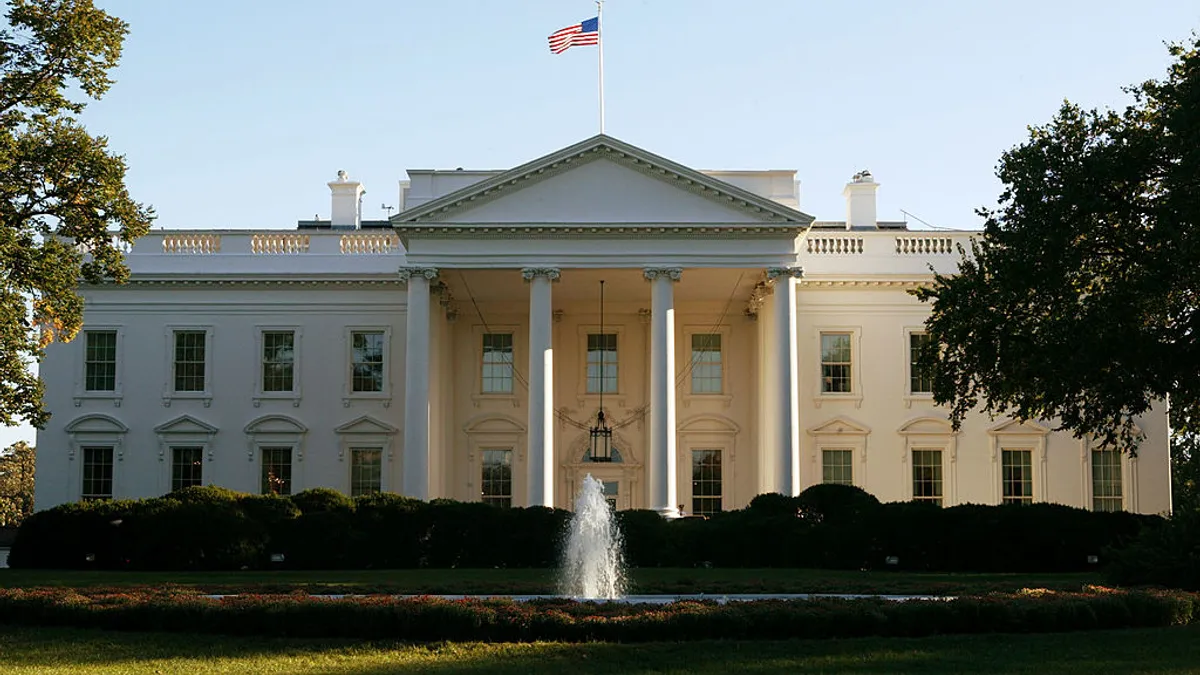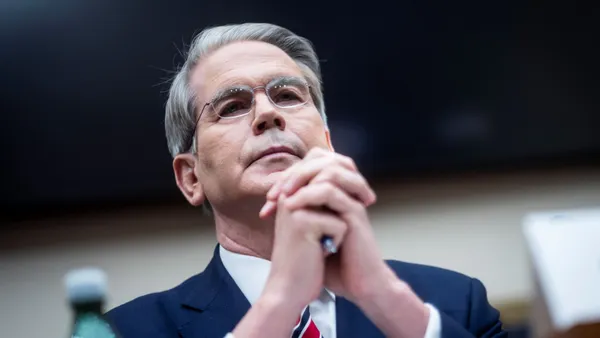Dive Brief:
- The presidential race between Vice President Kamala Harris and former President Donald Trump raises the stakes on the outcome of six salient policy points that may alter the strategic decisions by top business leaders, EY said in a report.
- Although Harris and Trump hold similar views on U.S. policy toward China, they differ in many ways in their approach toward taxation, trade, regulation, climate change, workforce challenges, and technology including artificial intelligence, EY said.
- “Outcomes of the 2024 elections could change the public policy landscape and impact the priorities of C-suites and boardrooms across the U.S.,” according to EY. “Policy approaches of Harris and Trump reveal significant differences — and some similarities — that are driving business strategy.”
Dive Insight:
The coming Nov. 5 election — like the hard-to-forecast outcome of other far-reaching changes — has prompted CFOs across North America to shy away from risk taking more than at any time since 2009, Deloitte found in a quarterly survey.
Only 12% of CFOs view current conditions as conducive to taking greater risks compared with 26% in the second quarter and 41% in Q3 2023, according to Deloitte.
Top financial executives also see potential hazards from inflation, the economic outlook and conflict abroad, Deloitte said. They most want the federal government to remove obstacles to retaining a skilled workforce and help overcome talent shortages, wage inflation and regulatory obstacles, Deloitte said.
Regarding workforce challenges, both Harris and Trump present themselves as champions of labor and will need to use their executive authority to manage immigration rather than rely on a divided Congress, EY said.
Yet the two candidates differ in their approach toward workforce problems, especially issues such as handling the southern border and diversity, equity and inclusion, EY said.
A Harris administration would likely advance current White House efforts to streamline the approval of business visas, whereas a second Trump administration would probably impose stricter visa requirements and “emphasize the domestic workforce,” EY said.
At the same time, both Harris and Trump would likely push forward with trade and tax policies aimed at improving the prospects for U.S. labor and manufacturing, according to EY.
For example, the two candidates have voiced skepticism about free trade and focused on safeguarding U.S. manufacturing and supply chains, EY said.
Harris would likely maintain or intensify the Biden administration’s focus on combating climate change — an effort criticized by Trump — and seek to strengthen worker protections. Trump has promoted big increases in tariffs to narrow trade imbalances — a proposal criticized by Harris, according to EY.
Nevertheless, “tariffs will be a sharp economic and geopolitical tool under either administration,” John Hallmark, EY U.S. political and legislative leader, said in an email response to questions, adding “there are more similarities than many people realize between Harris and Trump on some key issues.”
Both Harris and Trump would probably continue a trend of relying on executive powers to shape regulation, EY said.
Yet Harris would probably pursue a more ambitious agenda toward Securities and Exchange Commission rulemaking and oversight of the auditors for publicly-traded companies. Also, Trump would probably approach banking regulation with a “lighter touch,” EY said.
On technology, Harris and Trump have recognized the potential benefits from artificial intelligence but differ on how to minimize its risks, EY said.
The Biden administration last year issued an executive order promoting the creation of “safe, secure and trustworthy,” which Trump has pledged to scuttle as a threat to free speech, EY said.
On taxation, both candidates back the Child Tax Credit and exemption of tip income from taxes.
Yet Harris and Trump have said they respond very differently to the expiration in 2025 of the Tax Cuts and Jobs Act, which was a key initiative by the Trump White House, EY said.
Trump backs an extension of the TCJA and has voiced support for a further cut to the corporate tax rate, while Harris has said she wants to raise rates on corporations and high-income individuals while sustaining current rates for taxpayers with annual incomes less than $400,000.
“U.S. politics is more ideologically dynamic than any time in the recent past,” Hallmark said. “Both candidates and political parties are breaking new ground with voters and the political orthodoxy is being tested.”















